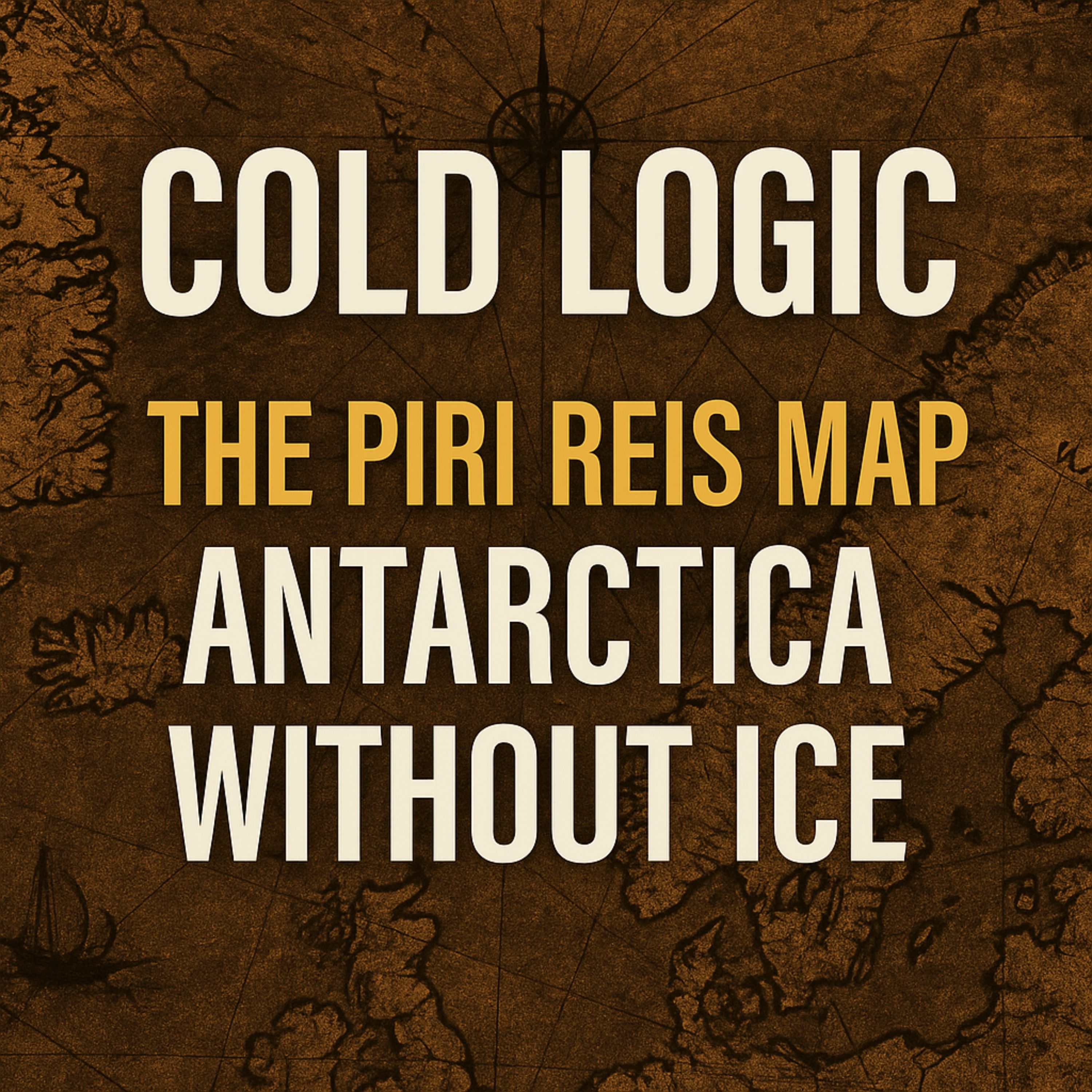

The Piri Reis Map: Antarctica Before the Ice — A 1513 Cartographic Mystery
In 1513, Ottoman admiral Piri Reis drew a world map on gazelle skin that would remain hidden for centuries — a map that appears to show the coast of Antarctica without ice, 300 years before the continent was officially discovered. How could a 16th-century cartographer have access to such precise geographical detail? This cinematic episode of Cold Logic investigates the origins of the Piri Reis map, explores the ancient source materials Piri Reis referenced, and examines whether this controversial artifact is evidence of a forgotten advanced civilization, hidden military knowledge, or even extraterrestrial cartographic assistance. We connect the dots from Admiral Byrd’s Operation Highjump to Charles Hapgood’s radical theories and explore why modern institutions seem eager to dismiss the map’s implications. If Antarctica was once ice-free, who saw it? And why did they leave behind maps the world wasn’t ready to see?#PiriReisMap#AntarcticaMystery#AncientMaps#CartographicAnomalies#ColdLogicPodcast#HiddenHistory#AdmiralByrd#AncientCivilizations#AntarcticaWithoutIce#MapsOfTheAncientSeaKings Sources and Key References:The Piri Reis Map of 1513, Topkapi Palace Museum ArchivesMaps of the Ancient Sea Kings by Charles HapgoodU.S. Air Force Cartographic Division (1960 report by Capt. Lorenzo W. Burroughs)Letters and translations of Piri ReisLost Knowledge of the Ancients by Graham HancockOperation Highjump Archives, U.S. Naval History and Heritage CommandNational Geographic, “Frozen Secrets of Antarctica”The Einstein–Hapgood Correspondence (1953–1954
Episode Details
About This Episode
In 1513, Ottoman admiral Piri Reis drew a world map on gazelle skin that would remain hidden for centuries — a map that appears to show the coast of Antarctica without ice, 300 years before the continent was officially discovered. How could a 16th-century cartographer have access to such precise geographical detail? This cinematic episode of Cold Logic investigates the origins of the Piri Reis map, explores the ancient source materials Piri Reis referenced, and examines whether this controversia...